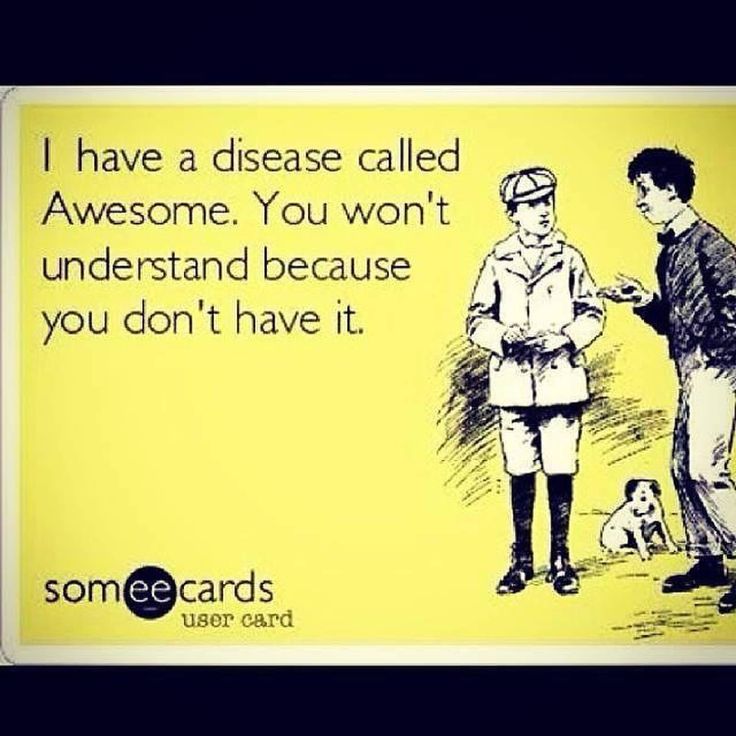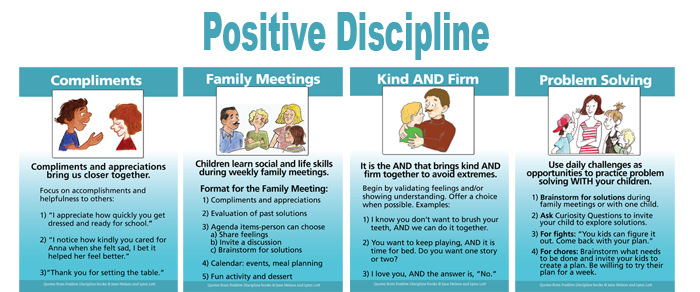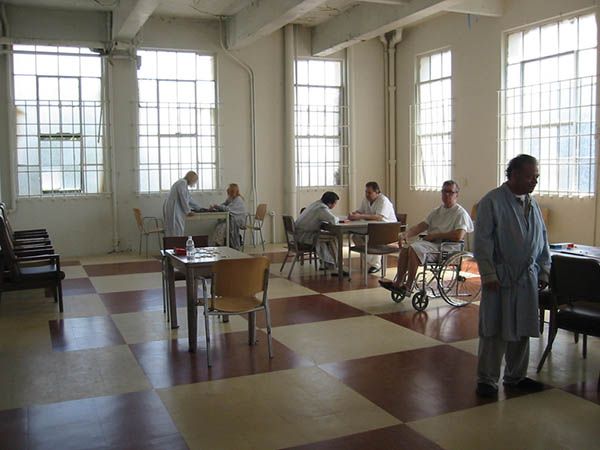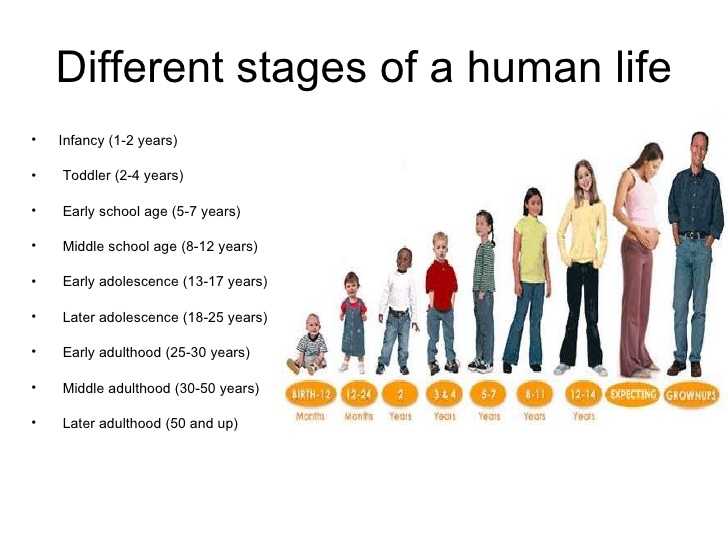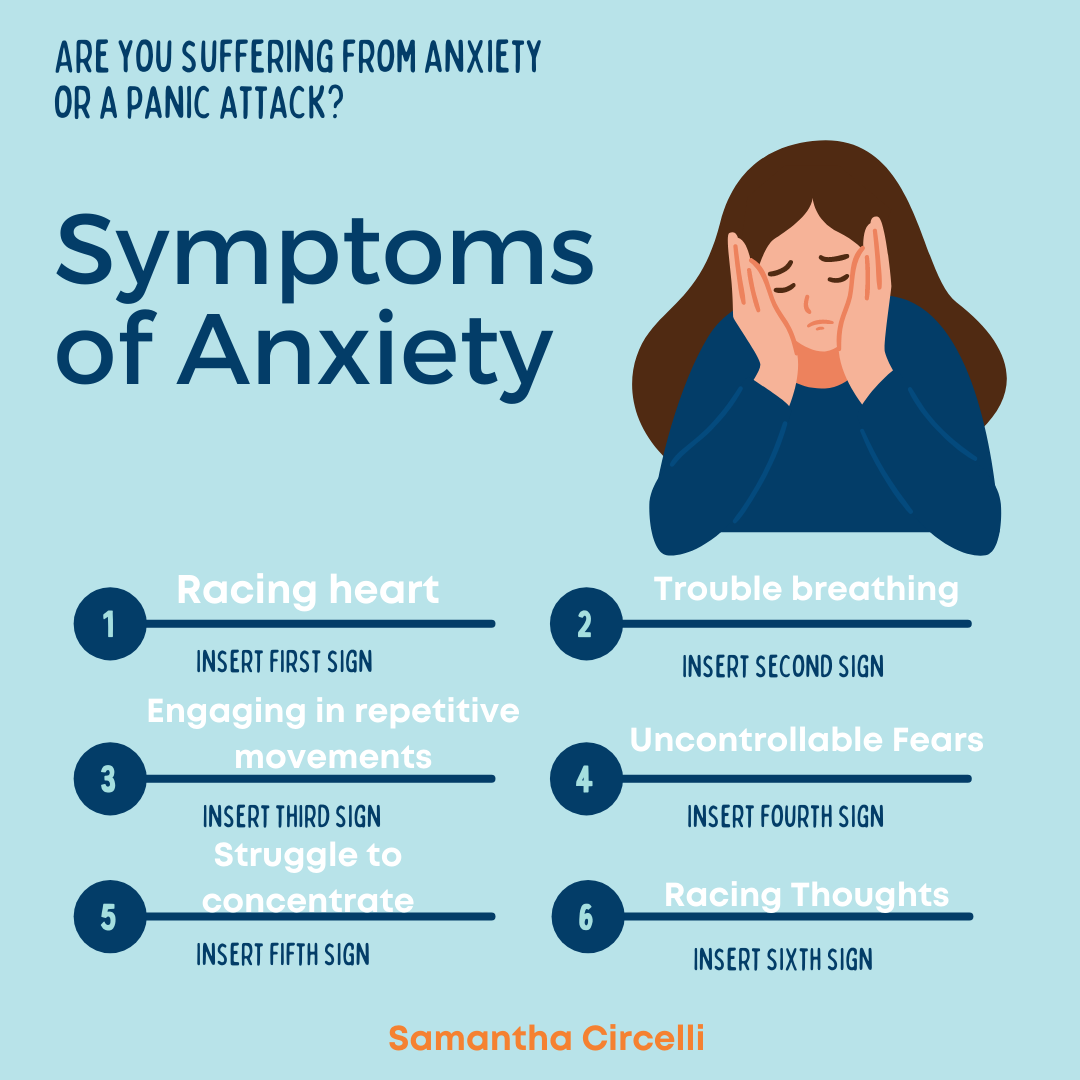Shift sleep schedule
7 Tips to Shift Your Sleep Schedule
Need to get up earlier for work or a workout? To return to your routine after traversing time zones? Or just want to get your day started before the sun comes up?
Below, Stephanie Silberman,Ph.D, a clinical psychologist, sleep specialist and author of The Insomnia Workbook: A Comprehensive Guide to Getting the Sleep You Need, provides tips on how to reset your sleep cycle.
1. Make adjustments in increments.
The best way to successfully shift your sleep cycle is to do it gradually, in 15-minute increments, according to Silberman. If you have less time to prepare for your new schedule, try 30 minutes, she said. (But no more than that.)
Give yourself at least three or four nights to get comfortable with the new schedule. If it’s going well, on the fourth or fifth night, shave off another 15 minutes.
Keep in mind that feeling groggy when you get up is normal. As Silberman said, “Most people don’t wake up full of energy. ” So expect that you’ll feel sleepy for about 20 to 30 minutes.
2. Be consistent all week.
The key to changing your sleep schedule is consistency. That means sticking to the same sleep and wake time throughout the week, including weekends.
If you want to sleep in on the weekends, Silberman suggested giving yourself an extra hour (two hours max). You may get less sleep on Saturday, but you’ll be back on track for Sunday, she said.
3. Keep your room dark at night and light in the morning.
“Our circadian rhythms are influenced by light and darkness,” Silberman said. Unfortunately, because of daylight savings, it’s still bright out at 8 p.m., which makes switching into sleep mode tough.
So, at night, close your blinds and curtains, and use a night light for reading. In the morning, “Flip on all the lights to jumpstart your body,” she said.
4. Wear sunglasses.
“Wear sunglasses in the afternoon and early evening to naturally [make yourself more sleepy],” Silberman said. Sunglasses trick your brain into thinking it’s bedtime.
Sunglasses trick your brain into thinking it’s bedtime.
5. Get up if you can’t sleep.
“Don’t lie in bed tossing and turning, especially if you’re wired,” Silberman said. Instead, get up and do something either boring or relaxing, she said. If you can’t stop thinking or worrying about something, get it out of your mind by writing it down, she said.
6. Stop pressing the snooze button.
While it might be rough to get up earlier, snoozing doesn’t help. “In general it won’t be the best quality of sleep,” Silberman said. She said to set your alarm to the time you actually want to wake up.
7. Follow sleep hygiene rules.
If you’re having trouble falling asleep, stop drinking caffeine within 12 hours of your bedtime or exercising within four to five hours, Silberman said. Give yourself an hour to unwind, she said. During that time, don’t do anything stressful or stimulating (such as use electronics).
You can learn more about Silberman at her website and follow her on Twitter, where she shares links to articles on sleep.
How to Sleep Well Despite Changes in Your Schedule
How to Sleep Well Despite Changes in Your Schedule | Johns Hopkins MedicineSince many Americans’ sleep habits are already less than ideal, it can be particularly tough to adjust to time changes that affect sleep schedule. The good news: “The human clock can shift about an hour or two per day,” says Johns Hopkins sleep expert Mark Wu, M.D., Ph.D. “So adults should be able to adapt to minor changes fairly quickly.” Bigger jumps—such as shift work and international travel—can have a decidedly bigger impact. Try these strategies to help yourself adjust.
How to Get Better Sleep at Daylight Saving Time
As a sleep-deprived nation, we love when daylight saving time ends in autumn: It gives us the gift of an added hour of sleep.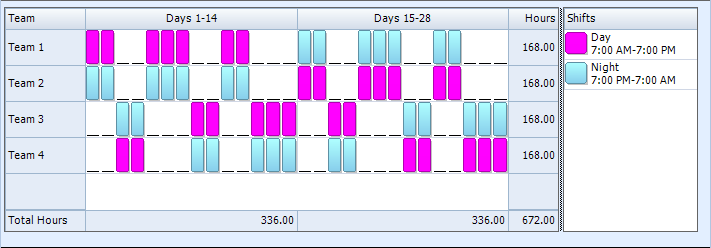 Springing forward is somewhat less welcome—though its effects should be short-lived. Tips that can help when this sleep schedule change comes around:
Springing forward is somewhat less welcome—though its effects should be short-lived. Tips that can help when this sleep schedule change comes around:
- Start shifting your clock a week early, and change wakeup time and bedtime by 15 minutes each day.
- Cut off caffeine usage an hour earlier than normal, and avoid alcohol, smoking, and intense exercise after dinner.
- Get up when the alarm goes off, even if you’re tired. Your body will adjust quicker if you stick to the new sleep schedule.
- Seek some morning sunshine to help yourself wake up—it resets your internal clock.
How to Get Better Sleep When Traveling Across Time Zones
As with daylight saving time, traveling across time zones is easier when it means you’ll be getting some extra sleep. Hence the old saying about travel, “West is best.” If you’re traveling east across one or two time zones, use the tips above to adjust your sleep schedule. For bigger leaps, try these suggestions:
- Expose yourself to bright light as close to your “new” morning as possible, but not until it is about two hours before your “old” wakeup time.
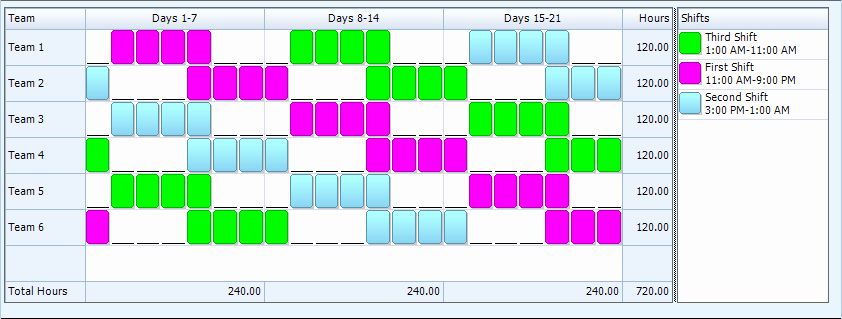 If you’re traveling east, avoid bright light in the evening.
If you’re traveling east, avoid bright light in the evening. - Change your eating schedule to that of your destination.
- Be prepared for jet-lag symptoms like excessive daytime sleepiness, nighttime insomnia, headache, appetite and digestive issues, and mood changes. Melatonin and over-the-counter digestive medications and headache remedies may help ease symptoms.
- Be patient: Your body clock typically shifts only one or two hours per day, so it may take five days to adjust if you’re traveling from America to Japan, for instance.
Try It Filter Out Blue Light Before Bed
Whatever your sleep schedule, try to avoid or at least reduce exposure to blue light within three hours of bedtime. Research shows that the blue light emitted by computers, smartphones, TVs and LED lightbulbs can prevent the body from producing the sleep hormone melatonin. One simple intervention is to dim the brightness on these devices. Many electronic devices now offer apps or filters you can use to dim the blue light. Another highly effective way of blocking blue-light exposure at night is putting on a pair of orange-tinted glasses that block blue light. This eyewear can be particularly helpful for night-shift workers who work on their computer or watch TV in the hours before sleep. People who play video games and do work on their computers late at night can also benefit from wearing these glasses.
One simple intervention is to dim the brightness on these devices. Many electronic devices now offer apps or filters you can use to dim the blue light. Another highly effective way of blocking blue-light exposure at night is putting on a pair of orange-tinted glasses that block blue light. This eyewear can be particularly helpful for night-shift workers who work on their computer or watch TV in the hours before sleep. People who play video games and do work on their computers late at night can also benefit from wearing these glasses.
How to Get Better Sleep with Shift Work
People who permanently work the night shift may be able to flip their sleep schedule completely, but off-days can create problems if social and family obligations cause them to reverse their sleep-wake habits for a day or two per week. Likewise, workers who cycle from one shift to another may feel as though they’re constantly battling jet lag. These tips may help you adjust:
- Expose yourself to bright light during the night to trick your brain into waking up.
 Blue light such as that from a computer, smartphone or TV is particularly helpful.
Blue light such as that from a computer, smartphone or TV is particularly helpful. - Consume small doses of caffeine throughout your workday. (This may work better than fewer large doses.)
- During the day, sleep in a quiet basement or a room with light-blocking window coverings, and turn off your phone’s ringer.
- Exercise or nap during your work breaks—but not too close to bedtime.
- Go to bed immediately after work, then get up and go about your routine.
Ultimately, says Wu, shift workers should do “whatever is necessary to survive.” Being awake all night is very hard on the body. In fact, researchers are exploring the link between shift work and serious health conditions including diabetes, depression, heart disease, obesity and cancer.
The takeaway: If you don’t have to do shift work, don’t do it—particularly if you have a diagnosed sleep disorder or a serious health condition such as heart disease. One exception, says Wu, are those who have severe delayed sleep phase syndrome. These people, sometimes called night owls, often feel better when working a consistent night shift instead of during the day.
One exception, says Wu, are those who have severe delayed sleep phase syndrome. These people, sometimes called night owls, often feel better when working a consistent night shift instead of during the day.
Related
-
Sleep Better
Choosing the Right Mattress: Making a Smart Investment
-
Sleep Better
Choosing the Best Sleep Position
-
Sleep Better
Seven Ways to Get a Healthier Night's Sleep
Related Topics
Sleep mode with shift night schedule. Sleep Secrets
In the US, one fifth of all jobs are in shift positions, including night shifts. In Russia, these figures are hardly less: many of us also work at night. At the same time, the doctor on duty, the security guard and the metallurgist standing at the open-hearth furnace have one common problem: poor sleep due to work, which arose as a result of a violation of circadian rhythms.
In Russia, these figures are hardly less: many of us also work at night. At the same time, the doctor on duty, the security guard and the metallurgist standing at the open-hearth furnace have one common problem: poor sleep due to work, which arose as a result of a violation of circadian rhythms.
New video!
TV channel "Culture". Lecture by R.V. Buzunova "How to overcome insomnia by limiting sleep." Watch here! nine0003
Ideally, our wakefulness should correspond to the light part of the day, and sleep to the dark part. According to this, our internal clock works, biochemical and physiological reactions occur in the body. While the sun is above the horizon, all organ systems are actively working for us, metabolism “accelerates”, body temperature rises. By night, all these processes slow down, the hormonal background changes, the synthesis of enzymes, the activity of the nervous system, and so on; we feel tired and want to sleep. nine0003
nine0003
Night shift disrupts the biological clock. Moreover, for a shift worker, day and night do not always simply change places. A person may have a floating work schedule at night and during the day: a chaotic alternation of day, day and night shifts. As a result, disruption of circadian rhythms occurs and gradually worsens. Circadian rhythms (internal clock, biological clock) are fluctuations in the intensity of various biological processes associated with the change of day and night. nine0003
Circadian disorders may be caused by more than just shift work. If you've ever taken a long-haul flight, remember how it felt to be a few hours "before" or "after" your usual time. Approximately the same thing is experienced by an employee who has an uncomfortable schedule, with the only difference being that he does not “jump in time” occasionally, but several times a week.
Daytime sleepiness, trouble falling asleep, low mood, tendency to depression, digestive disorders - symptoms of circadian rhythm disturbances significantly impair quality of life.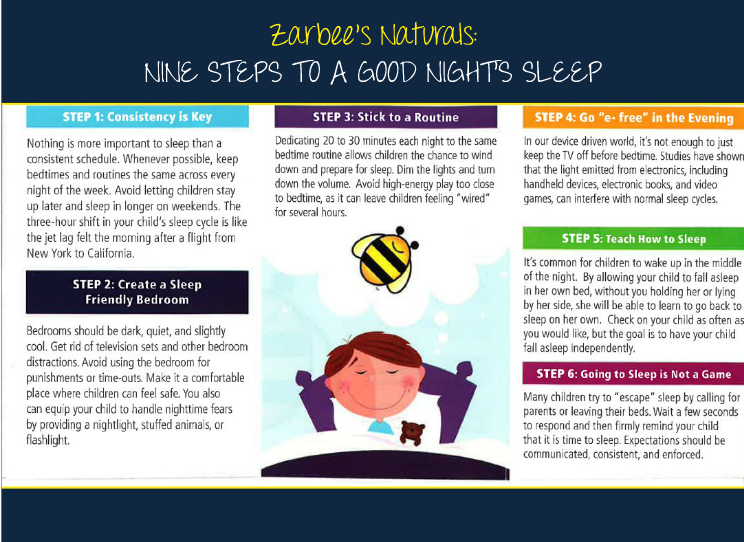 Ideally, to improve sleep and maintain health, you should give up working at night. But if leaving a shift night schedule does not work, you can at least try to reduce its harmful effects. The following tips will help. nine0003
Ideally, to improve sleep and maintain health, you should give up working at night. But if leaving a shift night schedule does not work, you can at least try to reduce its harmful effects. The following tips will help. nine0003
Online test:
Assess how you feel during the day to see if you have any sleep disturbances.
Work with a shift schedule. Before the shift
- If it is within your power, try to plan your schedule of employment so ...
- So that you do not have "one and a half" shifts when you work day, night and the next day. Only a day or 12 hours, and after that - rest. Otherwise, poor sleep due to work is simply guaranteed. nine0030
- So that night shifts alternate with day shifts not randomly , but in the prescribed manner. For example, it is convenient to plan a shift night schedule in the “day after three” or “one night shift - rest - two day shift” modes.
- To rotate the chart "clockwise".
 Example: one day you work during the day, one in the evening, one at night. This will make it easier to adapt.
Example: one day you work during the day, one in the evening, one at night. This will make it easier to adapt.
- On the day before your shift do not drink alcohol .
- If you have to work all night, and even more so the night and the next day, then you must sleep at least 2-4 hours immediately before going to work .
- If the shift lasts only until half of the night, it is better not to sleep for a long time before work - there is a great risk of not falling asleep until the morning. Alternatively, you can take a 20-30 minute nap to freshen up.
- If a night shift is scheduled, try to get a good night's sleep the previous night . nine0030
- Before leaving for work, prepare your own meal, so that you can have a quick bite to eat and go to bed when you return.
Shift work. During your shift
- Sleep at work if possible.
 Representatives of some specialties (on-duty fire brigades, watchmen) are allowed to do this. If you're not allowed to sleep long hours on a shift schedule, you can take a 20-30 minute nap in the middle of the night during your work break. nine0030
Representatives of some specialties (on-duty fire brigades, watchmen) are allowed to do this. If you're not allowed to sleep long hours on a shift schedule, you can take a 20-30 minute nap in the middle of the night during your work break. nine0030 - It is best not to eat after ten o'clock in the evening; the digestive organs are not set up for vigorous activity at night. If you allow yourself to snack, avoid large meals, as well as any heavy, fatty food.
- If you eat at work, don't do it on the run . Sit down and eat slowly. Otherwise, there is a great risk of unwittingly eating more than planned, and this will aggravate the consequences of a sleepless night.
- Caffeinated foods and drinks are allowed only in the first half of the night . Stop taking them 6 hours before you are supposed to go to bed (that is, about 5 hours before the end of your shift), as this may prevent you from falling asleep after returning home.

- If you feel sleepy near the end of your night shift, but you can no longer drink coffee, use other methods to cheer you up
- During your night shift, drink water (0.7-1L per night) to prevent dehydration that exacerbates the effects of circadian rhythm disturbances. nine0030
Shift work. After shift
- On the way home , if it's sunny outside, put on sunglasses ; darkness contributes to the production of the sleep hormone, and this is exactly what is needed at the time of preparation for rest.
- If it’s far from home, it’s better to get there by transport , otherwise, firstly, you will lose time that you could spend on sleep, and secondly, because of fast walking, you will cheer up and may not want to sleep at home . nine0030
- If, due to night work, you slept less than 5-6 hours per night, it is recommended to sleep after it . At the same time:
- Do not fall asleep in transport on the way home ; sleep after a night shift should not be interrupted, it is better to sleep once and for a long time than several times a little.
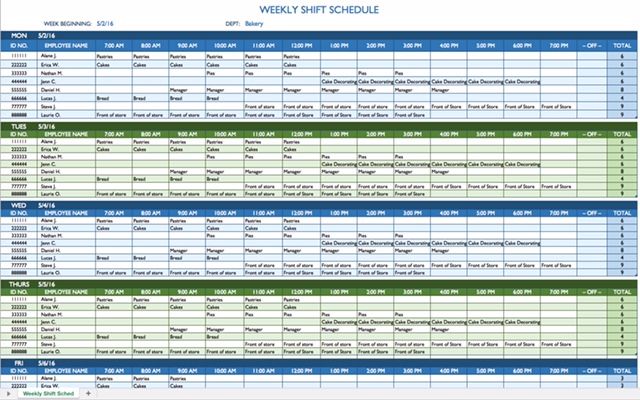
- Provide yourself with complete conditions for relaxation : good darkening of the bedroom, silence, sleep without outerwear and in your own bed. If necessary, you can use an eye mask and use earplugs. nine0030
- If you feel hungry, before going to bed you can have a light meal consisting of porridge, fruits, vegetables.
- Take Melaxen tablet 40-60 minutes before bed; It is an artificial sleep hormone that exhibits hypnotic and adaptogenic effects.
- Determine the optimal amount of "after work" sleep so that you sleep approximately as much per day as your body usually requires. Agree, if you take a nap for a couple of hours before work, and then come home in the morning and sleep from 8 to 16 in the evening, it will hardly be easy for you to fall asleep the next night. In such a situation, it would be better to limit your rest after the shift to 5 hours of sleep. nine0030
- When you sleep off your shift, set an alarm or ask someone to wake you up at the time you scheduled to wake up .
 Otherwise, you can oversleep, and this will further knock down your already suffering “sleepy” schedule.
Otherwise, you can oversleep, and this will further knock down your already suffering “sleepy” schedule. - The duration of sleep after work should be a multiple of the duration of one sleep cycle (it lasts 1.5-2 hours). This will help you wake up easily, without headaches, heaviness in the head and drowsiness, and then you can spend the rest of the day fully. nine0030
- After waking up, take a shower, exercise, drink coffee - this will help you to “fit” into everyday life faster.
- Talk to your family about the specifics of your job and explain that you need to rest after your shifts . Silence during your daytime sleep, planning important events for the moments when you will definitely be in good shape, helping with some everyday moments - all this is very important so that an uncomfortable shift schedule brings you as little discomfort as possible. nine0030
- On days when you are not working, keep a regular and correct routine : go to bed and get up at the same time.
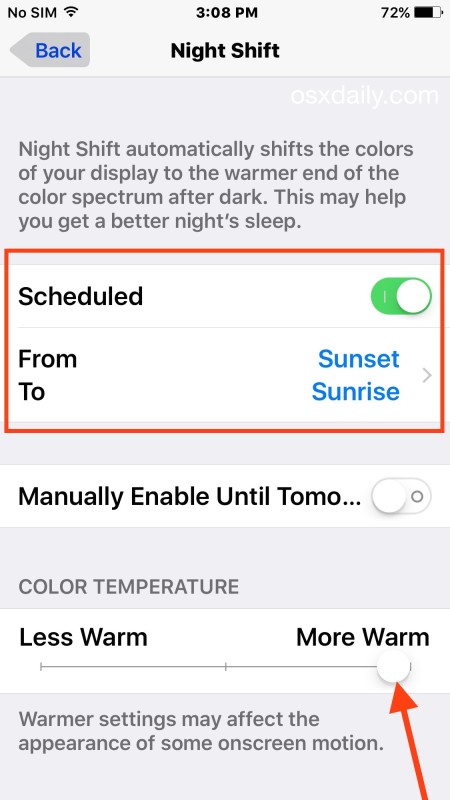 Even on weekends!
Even on weekends! - Exercise regularly , it increases the adaptive capacity of the body, improves the quality of sleep and well-being in general.
- Try to avoid stress as it exacerbates the resulting circadian disturbances.
Working hours at night are very inconvenient. But by using the tips above, you can make sure that sleep and quality of life suffer as little as possible from night shifts. Although, ideally, of course, you should seriously think about whether working with a schedule at night is worth the suffering that you have to endure because of it. nine0003
One should not work at night. It is unnatural, hard and dangerous. Night work is isolation from the family, poor health and health problems in the future. So, it was found that a shift night schedule increases the incidence of hormone-dependent tumors, especially in women, and diabetes, especially in men. In general, all shift workers can be advised to look for alternatives.
I wish you all such work that brings pleasure and does not interfere with sleep! nine0003
Online test:
Owl or lark?
Online test:
Comprehensive sleep test
dangerous condition to fight
+7 (495) 005-61-52
privatenap
52
Privatenap
English Version
+7 (495) 005-6152
Articles
10.10.22.2018
The situation with lack of sleep in the modern world as a whole is adversely adverse, but in people working on the night shift and with a shift schedule, this problem becomes completely catastrophic. The body must adapt to the non-standard mode, which is contrary to its default settings. Sleep disturbances caused by these conditions can be difficult to deal with, but there are methods that can help reduce the negative impact of shift work. nine0206
Risk zone
More than 60% of night shift workers do not get enough sleep, over 30% have poor sleep quality, about 9% suffer from insomnia [1]. Night and shift work is associated with high health risks, increased stress and depression. It affects almost all areas of life, negatively affecting professional activities, social ties, family relationships [2].
Night and shift work is associated with high health risks, increased stress and depression. It affects almost all areas of life, negatively affecting professional activities, social ties, family relationships [2].
Medical professionals are concerned about the spread of shift work sleep disorder, sometimes referred to as shift work syndrome. This is one of the types of biological rhythm disorders, when the internal biological clock conflicts with the existing schedule and it is difficult for the body to adapt to the floating cycles of sleep and wakefulness. nine0199
Shift work sleep disorder causes the body to produce less melatonin. Combined with the not-so-healthy lifestyle that accompanies a flexible schedule, this leads to the development of diseases. There are many studies proving that sleep disorder caused by a shift schedule carries great health risks: the cardiovascular and nervous systems, digestive organs, immune, and reproductive systems suffer. There is evidence that it can even provoke oncological diseases [3].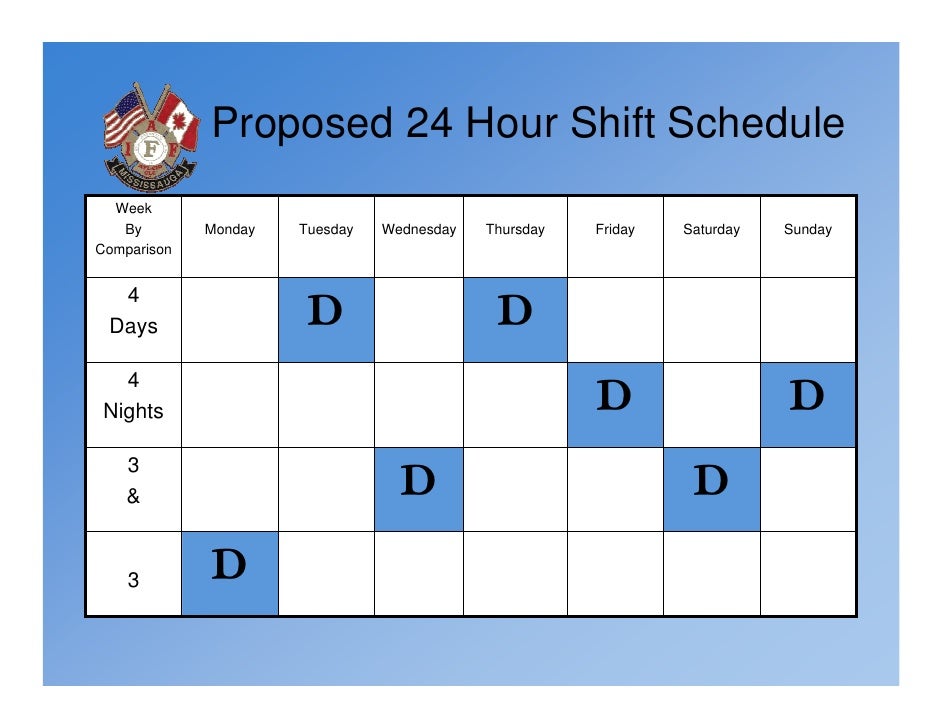 nine0199
nine0199
Shift work syndrome symptoms
Medical workers, transport workers, aircraft crews, guides, rescuers, military, police, security workers and other people who work 12 or 24 hours are at risk. But shift work syndrome symptoms are found not only among those who work night shifts or days, but also among people with a fuzzy or floating schedule, even if you need to work in the morning or afternoon. Many of the symptoms are similar to those of jet lag. Here are the main ones:
- You don't get enough sleep: shift workers often wake up after 4-6 hours instead of the required 7-8 hours.
- You can't fall asleep for a long time.
- You sleep badly and wake up broken and sleepy.
- During the day you always want to sleep.
- You can pass out for a few seconds without even realizing it (very dangerous condition for drivers, assembly line operators, etc.).
- You experience mood swings, irritability, anxiety (and all this gradually affects relationships with loved ones).
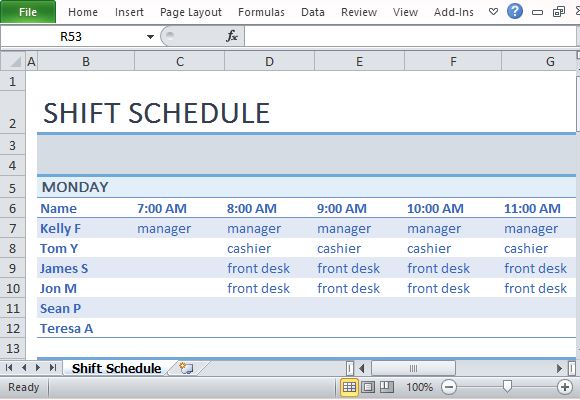 nine0030
nine0030 - It is difficult for you to concentrate on solving current problems.
- You feel physically or mentally exhausted.
How to fight?
You won't completely eliminate the negative effects of shift work on your body, but the following tips will help you improve your sleep hygiene and feel better.
- Try to keep the bedroom quiet and dark: use thick curtains, provide good soundproofing. Talk to family members and ask them not to disturb you while you sleep or make noise in the house. Turn off your phone. nine0030
- Limit alcohol, nicotine, caffeine at least three hours before bedtime.
- Try to eat right, avoid junk food, better take a balanced lunch in a container with you to work. You can have a small snack before bed - a light dinner an hour before bedtime stimulates the production of melatonin.
- Make sure you take a 10-30 minute nap during your break. This will help you cope with drowsiness and gain energy to continue working.
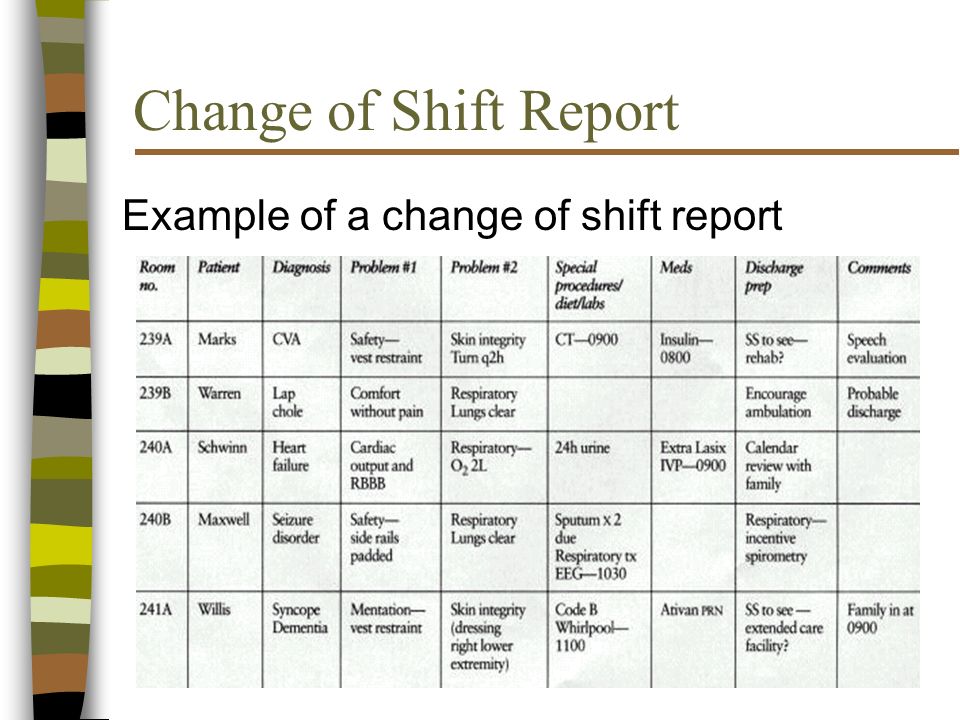 nine0030
nine0030 - When returning from a night shift, wear sunglasses and draw curtains when you arrive home. Exposure to daylight suppresses melatonin production and pushes your body to wake up.
Check out our other tips to help you get better sleep. They are relevant not only for those who sleep at night, but also for people who are forced to sleep during the day.
References:
- Yong C. L., Li J., Calvert G. M. Sleep-related problems in the US working population: prevalence and association with shiftwork status // Occupational & Environmental Medicine
- Drake C. L., Roehrs T., Richardson G., Walsh J. K., Roth T. Shift work sleep disorder: prevalence and consequences beyond that of symptomatic day workers // Sleep. 2004 Dec 15;27(8):1453-62.
- Kurt S. IARC Monographs Program finds cancer hazards associated with shiftwork, painting and firefighting // International Agency for Research on Cancer.
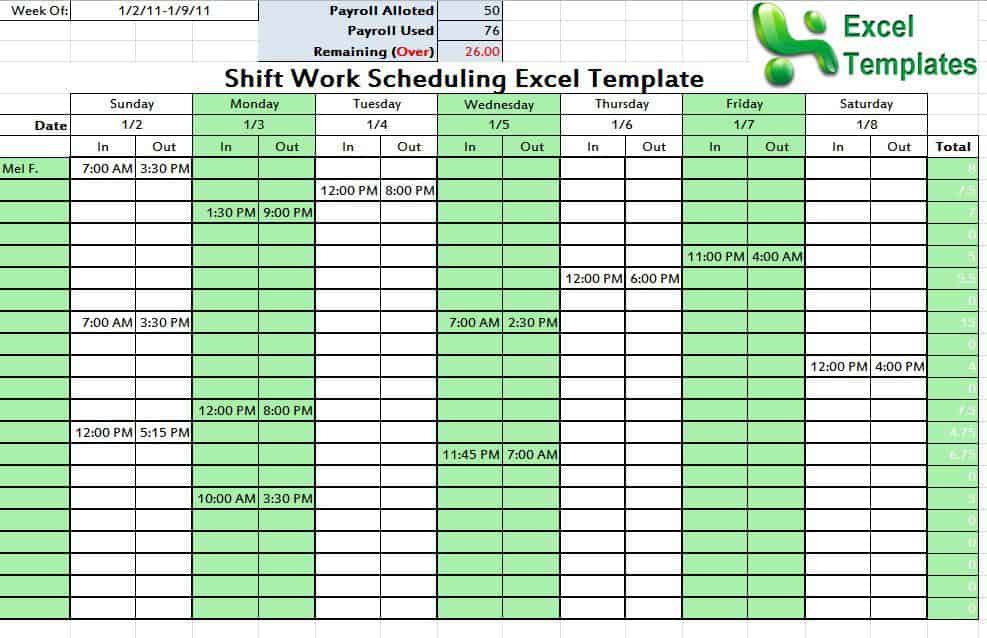
Learn more


